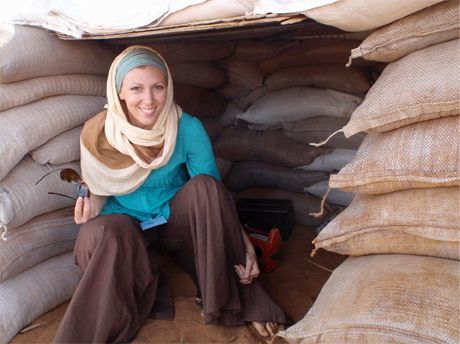
By Stacey Gualandi (@StaceyGualandi)/October 16,2013
While educating children in Somalia, Jessica Buchanan was kidnapped and held for ransom by Somali pirates for 93 days. She wrote about her life-or-death ordeal and eventual freedom in the New York Times’ bestselling book, Impossible Odds: The Kidnapping of Jessica Buchanan and Her Dramatic Rescue by SEAL Team Six.
“During the first couple of hours, I kept thinking this is so very bad; my life has changed forever. Things will never go back to the way things used to be.” Jessica Buchanan
After reading her first-hand account, there is no better title. I was honored to have her on The Women’s Eye Radio Show recently to share her story…
STACEY: Hi, Jessica! Please tell me you are in the States?
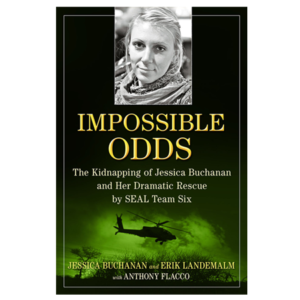 JESSICA: I am. I recently relocated here, with my husband and my son.
JESSICA: I am. I recently relocated here, with my husband and my son.
STACEY: Your book is a harrowing tale and also a love story when you think of what could have happened and the fact you can talk to us today. I want to ask you about your son. How old is he now?
JESSICA: He’ll be one next month and the biggest miracle out of all of this. We couldn’t be any happier. We’re just really, really fortunate.
STACEY: When you look back at your life for the past two years would you have ever thought that you’d be here now after everything that happened?
JESSICA: No, absolutely not. It’s so funny in an ironic sense. I look over the course of the past two years and think about everything that’s taken place and that we’ve survived and where we are now, living this normal suburban life, taking our one-year-old to the park and what not.
It’s mind-boggling and yet I feel grateful for those normal routines. There were definitely days and moments and more than one instance where I didn’t think I was ever going to have normalcy again.
STACEY: You were always passionate about helping other people since you were a teenager. What was driving you to be in Somalia in 2011?
JESSICA: I’m a teacher by profession. I ended up in Africa through teaching and volunteering and met my Swedish husband, Erik, there. He was working for a Swedish organization as a humanitarian aid worker.

We just clicked and that was six years ago. He was based in Nairobi, working in Somalia. After about a year and a half of courting, we decided to get married, and I moved up to Somalia so we could start our married life and see what opportunities there were for me.
STACEY: Your focus was very much on children, land mines and the many areas you were very passionate about.
JESSICA: Community safety was what we focused on in post-conflict areas. There are so many issues and leftover remnants of war. Also there is that psychological impact that still affects communities even though civil war has ended.
We were working in conflict management and trying to impact the psycho-social awareness of the communities, especially the children. They needed a lot of role models.
“In my head I’m thinking maybe this will take a couple of days to play out. We’re aid workers. We’re in the community. They are not going to keep us forever.”
STACEY: Were you ever aware consciously of the risk involved in working in certain parts of Africa?
JESSICA: There are always inherent risks when you work in areas like Somalia. You take those on, being as informed and as aware as you can be. I think my fear is that people will think that I wasn’t thinking clearly, but I went under the belief that I was fully informed and unfortunately information had been withheld from me. I would have cancelled my trip had I known about the kidnapping threat in the area.
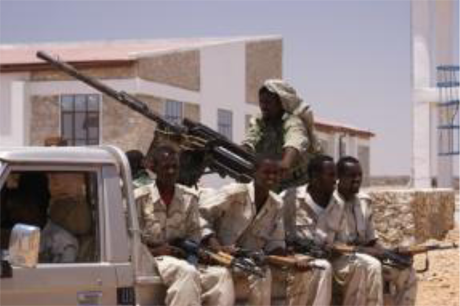
STACEY: Your women’s intuition kicked in that day though. You knew that there was something not right with the driver. At what point did you realize that you were in big trouble?
JESSICA: I think that was a realization that took on layers. During the first couple of hours, I kept thinking this is so very bad; my life has changed forever. Things will never go back to the way things used to be.
In my head I’m thinking maybe this will take a couple of days to play out. We’re aid workers. We’re in the community. They are not going to keep us forever.
And then after a couple of weeks you realize this is not going to resolve itself quickly. Then a couple more weeks pass by. It’s maybe a way of coping and a survival mechanism not to be able to absorb everything all at once.
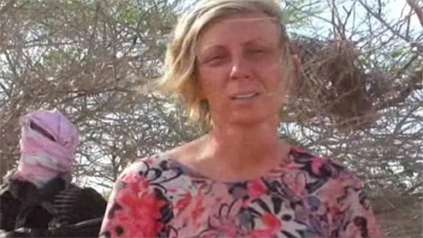
STACEY: Your book title is Impossible Odds. What were the odds for survival?
JESSICA: Very slim. These guys were asking absolutely ridiculous sums of money (45 million dollars). You couldn’t reason with them.
They didn’t understand the reality that we were aid workers, teachers, not millionaires and not able to come up with one million never mind 45.
The title sums up the entire experience because it never occurred to me that there could be some kind of military intervention.
STACEY: This experience would be enough to make anybody say I can’t do this and yet you made it through 93 days. How did you survive?
JESSICA: It’s hard to think about. I think like anybody you don’t have any other choice. You’ve got to survive. You are going to get out of this thing if it’s the last thing you do.
If you give up, they win. It’s always you battling it out with them. They seem the ones in control but with you surviving, you are in the pilot’s seat.
“I’m not a Somalia woman. I’m not a nomad. I don’t know how to live outside in the elements and survive a kidney infection.”
STACEY: What was the lowest point?
JESSICA: The worst was when I just got terribly ill. We were never inside a house; I wasn’t given proper hygienic materials, I didn’t shower the entire time, just a little sponge bath in dirty bacterial waters. I ended up getting a urinary infection that I knew was going to develop into a kidney infection.
STACEY: Plus you had a thyroid condition and they took your medicine away from you.
JESSICA: I knew my family and Erik were trying to get medicine in to me but they were withholding it as a tactic to get more money. I knew that if something didn’t happen things were going to get really bad.
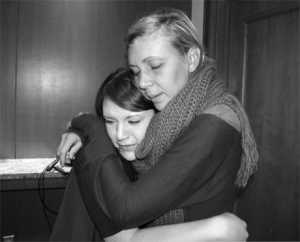
STACEY: You talk about visualizing your mother being there in the stars. At what point do you come to grips that maybe you weren’t going to escape the situation?
JESSICA: I think that my mother played such an important role because there was a side in me that believed I wasn’t going to make it out alive.
Knowing and believing, whether it was symbolic or in reality, that she was on the other side brought me a lot of comfort. I was still alone. I had lost her about a year before.
My grief was still very fresh and new. Talking with her was my way of coping and dealing with the fact that maybe I wasn’t going to see my family again.
STACEY: That last night you didn’t know what SEAL Team Six was or that the government was involved. Your health had taken such a turn that they had to do something quick, correct?
JESSICA: I had no idea that they knew where we were or that they knew about my declining health. The last proof of life call was a communication on behalf of my family on Jan. 16. I was very honest with her and told her of my symptoms and that I was afraid I was going to die out in the desert.
“That was the last conversation I had with anybody. It was about ten days later that the rescue took place. I didn’t have any inclination that anything could be going on. And even during the entire rescue, I had no idea that these were the good guys.”
I just had in my mind that we were being re-kidnapped by another group and this was taking a turn for the worst. Not only was I dreadfully ill but I was going to be with a new group, a worse group, and what would they do to me. My hope had been completely snuffed out.
STACEY: How did you know that these were your knights in shining armor?
JESSICA: Someone said my name. Jessica. I hadn’t heard it in so long. And then they identified themselves and said they were the American military and that they had come to save me and that they were taking me home and that I was safe.
My mental processes were so slow and with the entire shock of the whole experience I kept repeating over and over, “You’re an American?” I couldn’t understand it. It was just like a movie. I couldn’t find my shoes. They picked me up and put me over their shoulders.
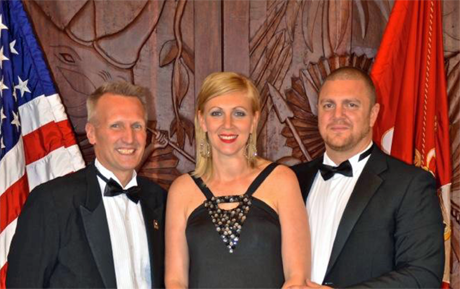
STACEY: Did you ever get to see those men again?
JESSICA: No. In every interview that I’ve done, I try to be so very very grateful. Hopefully, someone will pass on the message. That was part of the reason for writing the book, to thank them for giving me my life back to me and my family.
STACEY: They killed nine of your captors but that wasn’t everybody. Some people were lost. Are you angry that not all of them were caught and killed?
JESSICA: This is still an open investigation and I’m hoping they will find the men responsible and justice will be served. Of course, people being killed is not my first choice for anything.
If they could be found and taken and tried in a fair court and put behind bars for what they did to me and a lot of other people that would give me some sense of justice.
“My great life lesson forever is that the bad stuff that we fear most of the time just doesn’t happen.”
STACEY: Before you were kidnapped, you were trying to have a baby. But pretty much nine months after your rescue, you had your first child.
JESSICA: Talk about impossible odds!
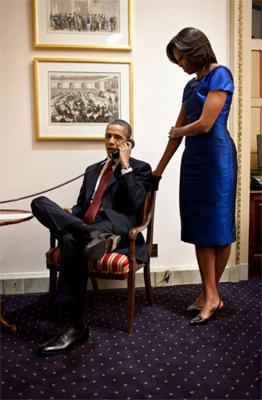
STACEY: Did having your son help in the transition back to a normal life like you had before?
JESSICA: I use that layers’ analogy again. Being pregnant was so shocking for me. I did not see that coming at all. Your body and your mind are going through so much when you are pregnant.
I had so much going on in my head about the kidnapping. I was worried about just what kind of mother I am going to be. How am I going to react? I was really scared to be honest with you.
My great life lesson forever is that the bad stuff that we fear most of the time just doesn’t happen. I would lay awake at night and worry about x, y and z and thank God they never happened.
The things that you often fear the most, don’t ever materialize. I found that to be the same when my baby arrived. When he came, it was the most amazing restorative experience.
All this new life wiped away all the bad stuff. August is the sweetest thing because the name means mighty and strong. He is such a strong little guy and brings life wherever he goes. He’s been a huge life lesson for me.
STACEY: What is life like for you now? You say you have a very supportive husband and friends.
JESSICA: People remind me constantly that it’s going to take time and we are here for you; they lift me up. I have the most amazing partner that I could possibly ask for.
STACEY: Do you and Erik want to go back to foreign lands?
JESSICA: We are just open to whatever life has for us, to continue to help in whatever way we can. We want to model that for our son. We want him to grow up knowing how we feel we should live our lives.
Maybe we’ll go back but for now we’re here and we are happy to be together and looking for any opportunities to use our skills and our experiences.
STACEY: Your book is a fascinating read. I’m so excited that I got to meet you. Good luck to you and continue your good works.
Video: Simon & Schuster
Photos: Courtesy Jessica Buchanan (@jandeimpossible)
###



Leave a Reply